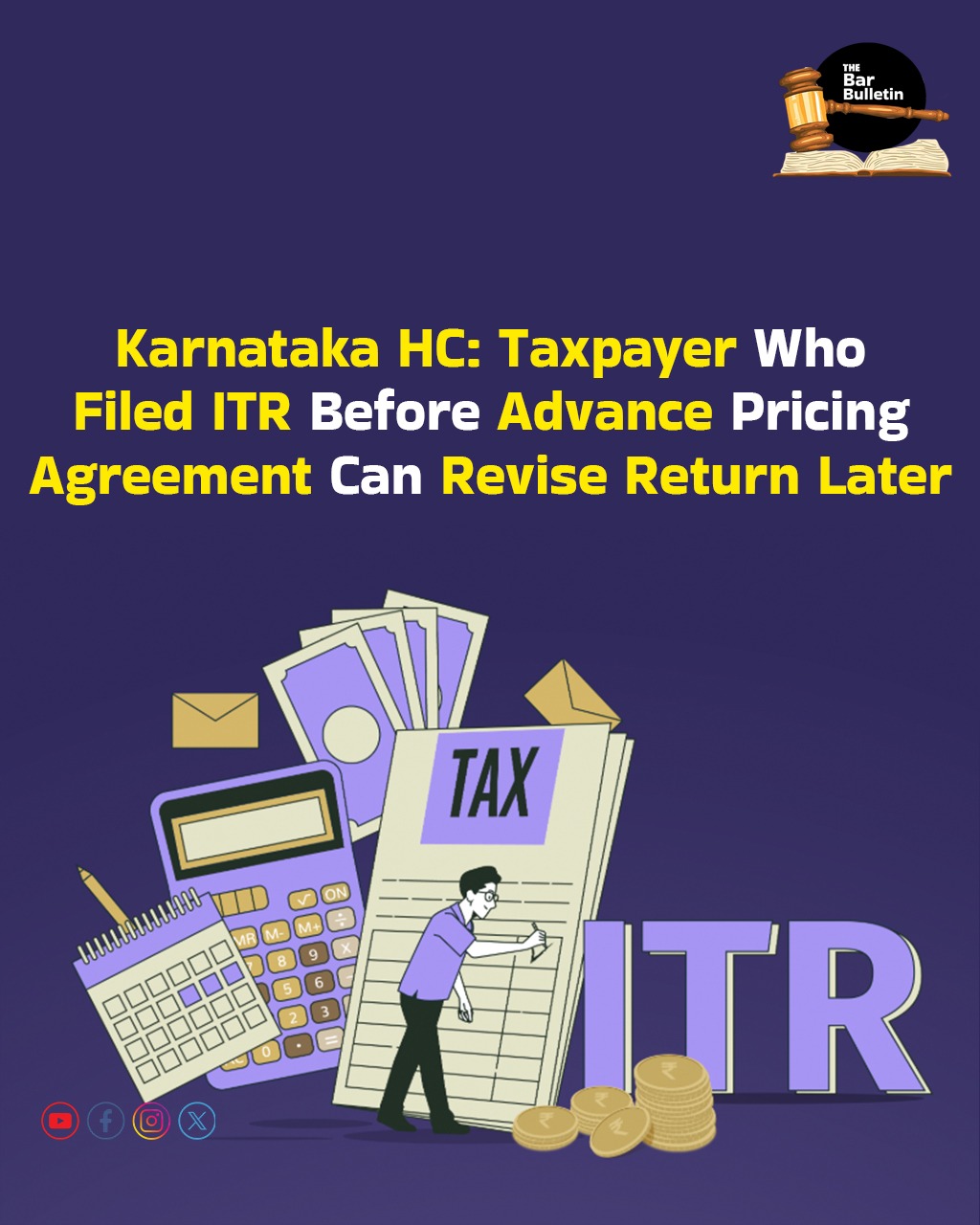The Karnataka High Court (Bengaluru Bench) recently ruled that even if the income tax return has been filed prior to the taxpayer entering into an Advance Pricing Agreement (APA), he is entitled to furnish a modified return declaring his income in accordance with the terms of APA. The Court clarified that the first proviso to Section 92C(4) of the Income Tax Act is applicable where the total income of the taxpayer as computed by the AO is higher than the income declared by the taxpayer, and absent any enhancement of income, the proviso to subsection (4) of Section 92C would be inapplicable.
The Division Bench comprising Chief Justice Vibhu Bakhru and Justice C M Joshi observed that the scheme of providing for an APA is to remove any uncertainty as to the determination of the income of a taxpayer engaged in international transactions with associated enterprises (AEs). The taxpayer is required to declare his income in accordance with the APA, and except in certain cases, where there is a change in law and facts or the agreement is occasioned by fraud or misrepresentation, the APA would be binding.
Reference was made to Section 92CC of the Income Tax Act which empowers the CBDT to enter into an APA with any person for determining an ALP or specify the manner in which the ALP is to be determined, in relation to an international transaction to be entered into by that person and income referred to in Section 9(1)(i) or the manner in which said income is to be determined as is reasonably attributable to the operations carried out in India.
Speaking for the Bench, the Chief Justice explained that if the taxpayer voluntarily computes the arm’s length price (ALP) pursuant to an APA entered into with CBDT, none of the conditions as set out in sub-section (3) of Section 92C are attracted. The Chief Justice also explained that in a case where the taxpayer voluntarily declares his income based on the ALP determined based on an APA, there would be no occasion for the AO to enhance the income.
The Bench emphasized that in terms of Section 10AA (1), the profits and gains of an enterprise, as referred to in clause (j) of Section 2 of the Special Economic Zones Act, 2005, from an eligible Unit, which is derived from the export of articles or things, are exempt. The proviso to Section 92C(4) essentially limits the exemption under Section 10AA in cases where the income computed is enhanced by the AO under Section 92C.
Since in the present case, the AO has not enhanced the income declared by the taxpayer, and rather the taxpayer had voluntarily factored in the ALP pursuant to the APA entered into with the CBDT, for computing the income as declared in its returns, the Bench dismissed the appeal in favour of the respondent-taxpayer and concluded that the proviso to subsection (4) of Section 92C would be inapplicable absent any enhancement of income by the AO.
Briefly, in this case, the respondent, engaged in the business of providing back-office support and data processing services to its customers, filed its returns declaring an income of Rs. 23.91 crores for AY 2015-16 and Rs. 52.84 crores for AY 2016-17. The respondent also claimed deductions of Rs. 5.60 crores and Rs. 62.67 crores under Section 10AA, respectively. In its ITR, the respondent also voluntarily declared transfer pricing (TP) adjustments of Rs. 14.82 crores, which were reworked at Rs. 21.36 crores on account of the APA. Accordingly, the respondent claimed that the voluntary TP adjustment pursuant to the APA included Rs. 11.96 crores for the SEZ unit, which is eligible for deduction u/s 10AA for the A.Y. 2015-16 and Rs. 36.90 crores for AY 2016-17.
The AO, however, denied the exemption under Section 10AA on the transfer pricing adjustment made pursuant to the APA, and reasoned that the respondent had declared the TP adjustments in anticipation of the TPA and to avoid the rigour of Section 92C(4). This finding of the AO was reversed by the CIT(A), who held that the exemption u/s 10AA could not be denied on the enhanced income, and the proviso to Section 92C(4) was not a bar for allowing such a claim.
Appearances:
Advocate Sanmathi E.I., for the Appellant/ Revenue
None, for the Respondent/ Taxpayer



